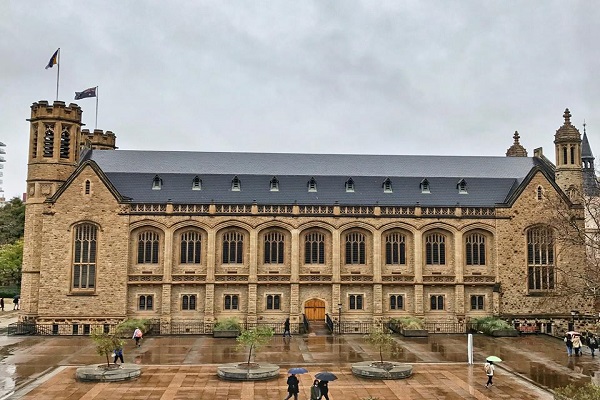Significant Investment Promises Improved Patient Outcomes
A new precision treatment approach which could improve the lives of people with severe sinusitis and asthma is one of five University of Adelaide health projects to secure a share of more than $5.7 million in funding from the Federal Government’s Medical Research Future Fund (MRFF).
Led by Associate Professor Harshita Pant, this clinical trial was awarded more than $1.8 million over five years through the MRFF’s Chronic Respiratory Conditions grant and will look at reducing steroid and antibiotic use in patients with severe chronic disease, which happens when the sinuses and lungs become inflamed.
“Many Australians suffer from poorly controlled chronic sinusitis, which impacts greatly on quality of life. This is often associated with brittle asthma, which can become life-threatening,” said Associate Professor Pant, who is an ear, nose, and throat (ENT) surgeon at the University’s Adelaide Medical School.
“Every sinusitis and asthma sufferer’s immunological environment is unique. To date, only broad-based treatments have been available that are inherently non-specific and only partially effective. Unfortunately, this often entails excessive use of steroids and antibiotics, which carry potentially harmful side-effects.”
“Our new immunological approach, which involves using cutting-edge technology to analyse sinus tissues, is designed to identify disease-causing immune cells to tailor specific therapies to individuals, thereby improving patient outcomes and minimising side effects.”Associate Professor Harshita Pant, Adelaide Medical School, University of Adelaide.
“Precision treatment allied to immunotherapy is the future of medicine and is now within our reach. Our new immunological approach, which involves using cutting-edge technology to analyse sinus tissues, is designed to identify disease-causing immune cells to tailor specific therapies to individuals, thereby improving patient outcomes and minimising side effects,” she said.
Other University of Adelaide projects to receive funding include:
- Professor Toby Coates AO, a transplant specialist from the University of Adelaide’s Faculty of Health and Medical Sciences and the Royal Adelaide Hospital, has received more than $1.3 million over four years to see whether an existing medication called rapamycin can be repurposed to improve the effectiveness of vaccinations in older people and transplant patients. The grant was through the MRFF’s Clinician Researchers: Applied Research in Health program.
- Associate Professor Lee-anne Chapple, a Research Fellow at the Adelaide Medical School and clinical dietitian at the Royal Adelaide Hospital, is looking at nutritional interventions that could help improve the recovery for critically ill patients. The project has been awarded more than $1.1 million over four years through the MRFF’s Clinician Researchers: Applied Research in Health program.
- Dr Patrick Asare, a lung disease expert at the University of Adelaide, has secured $990,064 over two years through the MRFF’s Early to Mid-Career Researchers Initiative Grant to investigate if zinc supplements can prevent recurrent respiratory infections in people with chronic obstructive pulmonary disease.
- Dr Hannah Wardill, a Hospital Research Foundation Fellow and lead of the Supportive Oncology Research Group in the School of Biomedicine, has been awarded $464,131 over three years through the 2023 Consumer-Led Research scheme for the MyWELL study. The study will develop and test a new mental wellbeing program for people living with myeloma, an incurable blood cancer, and its precancerous form, smouldering myeloma. The team’s goal is to help people live well with these diseases.

